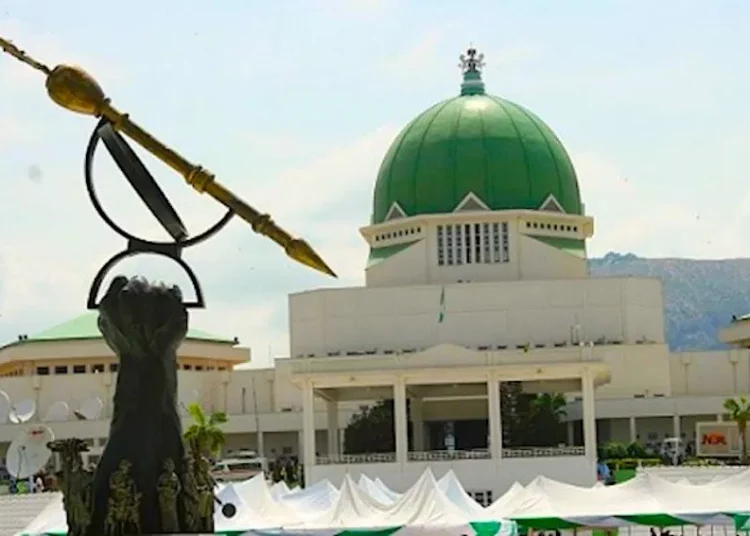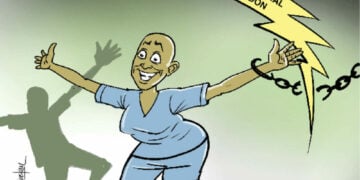I am one Nigerian who believes that in a complex political landscape like ours, the emergence of certain second-rate characters as leaders should raise questions. A case in point is Godswill Akpabio as Senate president. Beyond education and experience, the former Akwa Ibom State governor lacks the blend, suaveness and political mien for assuming a role as significant as that of the chairman of the country’s parliament.
Akpabio, a seasoned politician who was once touted as an uncommon transformer, may have done well as chief executive of his state. But when it comes to national politics, he seems to fall short of the finesse for which the office of the Senate president and the leadership of the National Assembly demand.
And my reason is simple. Some of his utterances before and after he emerged Senate president amply demonstrate the fact that he lacks the subtlety needed for the number three position in the country.
I recall now, as always, what transpired during the public hearing by the House of Representatives committee investigating allegations of corruption in the Niger Delta Development Commission (NDDC). Akpabio who was the minister in charge of the ministry supervising the commission was summoned to testify. The aftermath of his appearance marked a turning point and yielded the memorable “off the mic” mantra that reverberated across the nation.
More recently, Akpabio incurred public outrage with his ill-conceived comment about allowing the poor to “breathe.” At a Senate plenary, Akpabio, while putting a motion to vote, said, “The prayer is that let the poor breathe, and Senator Mustapha has seconded that the poor should breathe. Those who are in support of the additional prayer that the poor should be allowed to breathe say ‘aye’ and those who are against say ‘nay.”
Some Nigerians perceived that as being insensitive, coming from people who are viewed as feeding fat on the nation’s treasury without doing anything commensurate with the money they keep guzzling.
His seemingly insensitive remark reaffirmed the gap between the lawmakers and the great mass of struggling Nigerians. Such statements further fuel the perception that the lawmakers have very scanty regard for the average Nigerian.
Very adept at courting controversy, Akpabio, in yet another public gaffe, announced on the floor of the Senate that the Clerk of the National Assembly had deposited money into Senators’ personal bank accounts for their enjoyment during recess. His words, veiled in humour, triggered debates on whether Senators deserve such a lavish vacation stipend amid current economic challenges the ordinary citizens are grappling with.
Akpabio’s statement, initially brushed off as a mere joke, snowballed into intense debate when it was later discovered that each Senator got N2m as holiday allowance. This revelation sparked justified indignation. Coming at a time when ordinary Nigerians are contending with rising prices and economic instability, the largesse for Senators illuminated the divide between lawmakers and their constituents.
After public outcry, the National Assembly bureaucracy intervened to clarify that the N2 million was part of lawmakers’ office running costs for 2023, and not a largesse. Yet, the clarification struggled to counteract the sentiment that the lawmakers were indulging in self-serving extravagance in the face of a larger financial crisis.
This episode is merely a glimpse into the tangle of allowances that Nigerian lawmakers receive. While some are constitutionally sanctioned, the underlying question remains that shouldn’t representatives who are aligned with public interest take initiative to trim their privileges in line with the call to cut cost of governance? Certainly not for our lawmakers! This is a National Assembly that is ready to spend N40billion on the purchase of exotic cars for its members. The stark contrast between the plight of citizens and a parliament that allocates billions of taxpayers’ money for luxury cars and extravagant perks underlines a sheer absurdity.
But Nigerians know that they are unfortunately dealing with a National Assembly that, like Prof Tunji Dare noted, has “put all pretences away and revealed its true character as a self-dealing, money grubbing…”
In a country where more than 100 million of its citizens are multi-dimensionally poor, and are frequently being asked to make sacrifice for a better future, while government claims it is cutting down expenses to free up more resources for infrastructural development, security and others, there is clearly no justification for a profligate National Assembly.
Nevertheless, the N2million largesse pales in significance by comparison with other unjustifiable, mind boggling and vexatious allowances that the lawmakers draw almost on a monthly basis. Truth be told, some of these allowances have constitutional backing. But if the lawmakers are committed to the idea of freeing up resources, they would, on their own, cut down some of these allowances.
Sadly, a National Assembly that has concluded plans to spend N40billion on exotic cars for its 465 members and finds nothing wrong with spending N70billion as palliatives for new members clearly doesn’t give a hoot about pruning down the cost of governance.
As the nation grapples with multifaceted challenges, our lawmakers must rise above selfish interests and prioritise the common good. A journey toward revitalising the National Assembly necessitates leaders who truly bridge the gap between the chambers and the people they serve.
With all sense of modesty, Nigerians need somebody to save them from the profligacy of the federal legislature. But like Nigerians, the lawmakers need to save themselves from a chairman like Akpabio. The legislators themselves must internalise the imperative to navigate from such contentious figures as Akpabio. His legacy, marred by controversies, epitomises the critical need for a shift towards responsible leadership.
Indeed, All Eyes Are On The Judiciary
In 1996, the late American rapper and unarguably one of the most influential and successful rappers of all time, the iconic Tupac Amaru Shakur dropped one of his unforgettable tracks, a hit song one must say, ‘All Eyez on Me’.
Almost 30 years after Tupac’s hit song, it’s not the song that holds our attention, but rather the phrase itself as our emphasis is on ‘All Eyes on the Judiciary.’ This phrase is more than just words; it encapsulates the ongoing struggle of Nigerian politicians as they vie for and solidify their hold on power.
The outcome of the 2023 elections is being contested in courts where there are no fewer than 1,500 cases all of which INEC, the electoral umpire, is joined as a respondent. Although Nigerians voted, because of the requirements of our laws, the judiciary will ultimately determine the fate of leadership.
To the extent that focus has shifted to the election petition tribunals sitting across the country, no one, not even the judiciary, can deny the pivotal role it plays. And like Justice JR Midha of the Indian High court eloquently puts it, “in the court of justice, both parties know the truth. It is the judge who is on trial.”
Indeed, an average Nigerian knows that the judiciary is on trial. That is one fact nobody can dispute. The recent action of the Advertising Regulatory Council of Nigeria (ARCON) to pull down and even penalise some of its officers over the ‘All Eyes Are on Judiciary’ billboards won’t change the fact that indeed, the attention is fixed on the judiciary.





